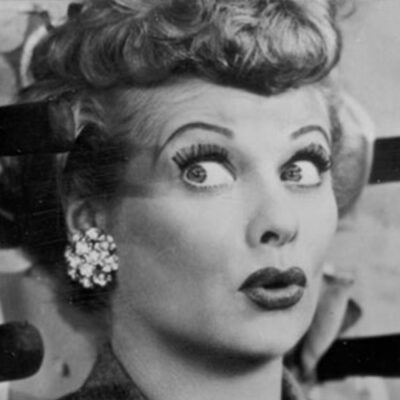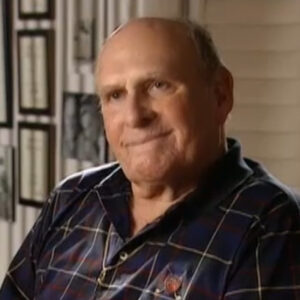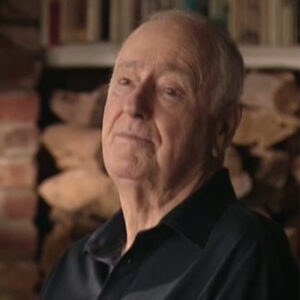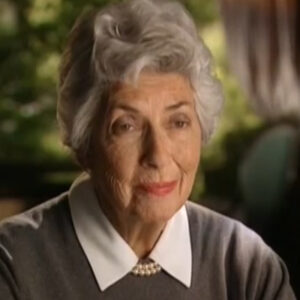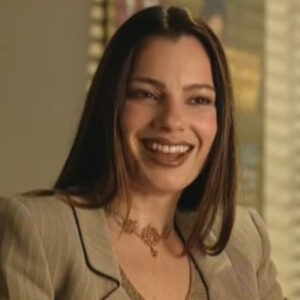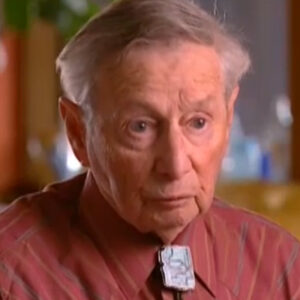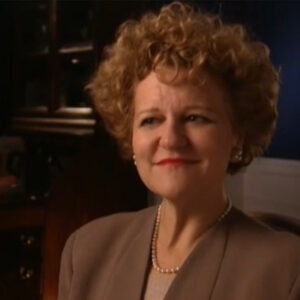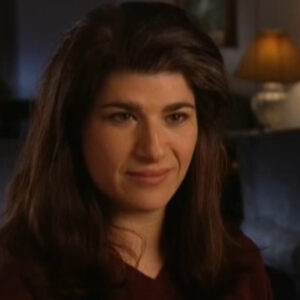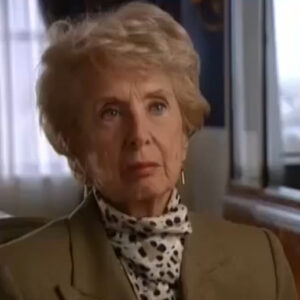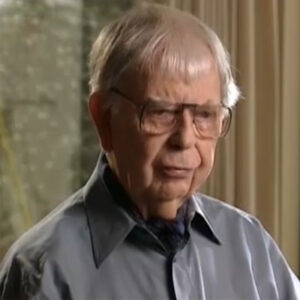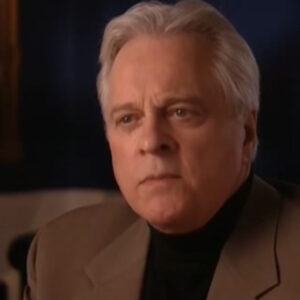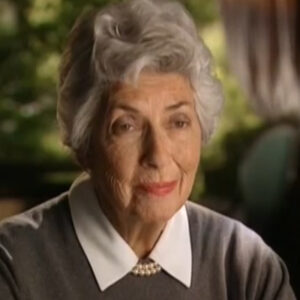Interviewer: And I would just like to start with how and where and when you first met Lucille Ball.
Doris Singleton: Well, let me see. I first met her in radio.
Interviewer: I’m going to stop you. I first met Lucy.
Doris Singleton: Oh, yeah. You told me all about starring, OK. I first met Lucy in radio. She was doing my favorite husband then. And I was doing a lot of radio, doing all of the shows, you know. And so and I did a lot of comedy. So they asked me to do the show and I did. And then when the show went to television. Lucy liked working with people she had worked with before successfully. So anyway, they asked me if I would come and do do their television show, which I was delighted to do. I had a lot of radio people who moved from radio to television. And that’s because the radio people had stage backgrounds before they did radio. So we were kind of a we sort of knew what we were doing.
Interviewer: All right. I don’t want to get on TV quite yet because you’re one of the few people we’ve spoken with who actually was part of my favorite husband as a first hand eye witness. So how can you just paint a picture for us of what that radio stage looked like? Where was the audience? Were you in a booth? Were you not in a booth with the engineers in the booth? Just as much as you can recollect a picture for how it was all set up and how it worked. And did you share a microphone as well with your own Mike Frost? Tell us a little bit about the physical feeling of that radio.
Doris Singleton: Well, radio as opposed to television was very. Now I have start over. We did radio in a studio with an audience because all of the comedians and comedians at that time wanted that. They wanted the reaction from the audience, even though. And at that time, they didn’t put they didn’t have a laugh track. You know, they depended on a live audience to laugh. And so the audience was out there in like a theater and the technicians and the engineers and so forth were in the booth. The actors were onstage. We always sat on stage in the chairs were lined up and they were usually two microphones because you might be there might be four people on the mike at the same time. So there’d be two on one side and and two at one like him, two in the other. And the radio was wonderful because you could do everything no matter how old or young you were, whatever your voice portrayed, you know, that was what you could do. You could do any character.
Interviewer: And tell me what you all wore. Because I’m interested in a lot of the photographs. Lucy’s wearing pants, which seems sort of chic in advance.
Doris Singleton: Yeah.
Interviewer: I don’t know. And do you ever wear costumes or things to, like, enhance your characters?
Doris Singleton: No. In radio, sorry. No, in radio we just dress normally. You did dress for the character a little bit for the audience, you know, because if you were playing a sexy character on the show, you would come in with a kind of sexy dress, you know, and that if you were in and you knew and you had an audience, you tried to be a little more, you know, as you knew it. But no, we didn’t dress the part for radio. No.
Interviewer: And tell us a little bit about Alice Cooper, the character that Lucille Ball played on.
Doris Singleton: Well, she was very much the same story again. And say Cooper, Alice Cooper, as played by Lucy, was very much the same character as the one she did on television. She was the, you know, kind of ditzy wife and always getting into trouble and so forth. And and her husband was getting her out of it, out of trouble.
Interviewer: I would just take that again. Always getting into trouble her husband was getting.
Doris Singleton: Lucy was always getting into trouble on that show and her husband was always getting her out of it, as was the case in her television series.
Interviewer: Now, tell us about Jess Oppenheimer. I understand he was the producer of that show as well as the lady. Tell us a little bit about how your impressions of him as a person and how he worked. Are you seeing the moth that’s fluttering around? Oh, no. I saw for a moment. All right. All right. Well, I noticed it again. So tell us a little bit about him as a person and how he worked with you and Lucy and the rest of the cast and sort of what his contribution to the whole thing was.
Doris Singleton: Well, Jess Oppenheimer was the original writer on the show. The head writer on the show just was a personal friend as well as someone that I worked with. I did many shows with with Jess. And he was a fun person. And, you know, I really liked him a lot. He and my husband were good friends. And I guess he liked my work because he asked me to come over and do Lucy when Lucy went to TV.
Interviewer: How do you think he he worked with Lucy? Obviously, it must have been a successful combination and not everybody was as successful working with this is just was. Can you talk a little bit about how he handled her?
Doris Singleton: Well, I think that Jess handle Lucy very well. Lucy was very positive about what she liked and what she didn’t like, but just was also very positive about what was good for the show. So anyway, Lucy listened to him and took his advice. And if she wanted to, you know, she’d say, well, OK, maybe maybe we’ll do it that way. Maybe we’ll do it your way, or maybe we’ll do it mine.
Interviewer: Were you aware at the time that CBS wanted to turn my favorite husband into a television program?
Doris Singleton: Not really. I was not aware that CBS wanted to turn the radio show into a TV show because at that time I was doing a lot of other shows. I did the the Bob Hope show and Heysel and my three sons came later. That was that was not radio. My three sons was television. But no, we we weren’t that aware of that because we were doing all of us were doing many other shows. So this was just another, you know, fun show to do fun comedy. And we were happy that it went to TV.
Interviewer: Do you know much of the story about, you know, when CBS called Lucy and she said, well, that’s fine, but I want destiny to play in that husband, not Richard. And CBS wasn’t so hot on that idea, do you? Did you hear the story of this pilot and how it all came about?
Doris Singleton: Well, I didn’t hear too much about about the change, really. Not until it happened. That’s when I became aware that the show was had moved from radio to TV. But there was not a lot of discussion, really. I knew that Jess was going on the show. And but no, I really can’t tell you too much about that.
Interviewer: Did you watch the show when it first came on the air?
Doris Singleton: Always tell me about. Yeah, I loved it. I love watching the show because, well, I loved working with Lucy. So even but before I was on the show, as steadily as I as I was, I enjoyed watching it because it was so different, you know. I don’t know whether people are aware that doing that show now we’re talking about the television show. Right. That was done. That was the three camera technique. And nobody had done that before. We did a show that was filmed or taped with an audience. The audience sat in bleachers. It was three cameras and Lucy had her own camera and Desi and Vivian and Bill. And anyway, it was very it was unusual because you had to play to the audience. Lucy would say, no, listen, there’s an audience up there. You’ve got to project. You’ve got to be heard. You can’t whisper your lines, you know. So you were playing to the audience at the same time you were. Playing to the camera and you had to be in your camera and you better be damn sure you were not at Lucie’s camera because, you know, the cameras were close together. And if you put your head over here, you know, and don’t knows, got in her camera. That was very bad. And there weren’t there weren’t a lot of retakes at that time. We didn’t stop for mistakes or anything like that. So it was a very unusual way of presenting a show. I had not been done before. There’ve have been shows that were filmed and some that were live, but not not a three camera technique.
Interviewer: So what would happen if you got your nose and Lucy shot? Did you hear about it?
Doris Singleton: You bet. In no uncertain, what’s the matter with you? Don’t you know your marks? Don’t you know your camera? Oh, yeah. No, we didn’t do that too often.
Interviewer: Tell us a little bit about as a non actor, I guess I have a fantasy that before you’re going to go out there who are in front of a live audience where you damn well better not get your nose in her eyes a lot to keeping your head at one time. And if you’re not going to stop for mistakes, it’s a little bit like flying without a trapeze net. I mean, more so than today. Can you tell me a little bit about the possible mistakes that could go wrong and the kind of excitement and tension that you must have felt and the pressure?
Doris Singleton: Well, the show was, you know, we we rehearsed for four days and then we did the show the fifth day. I think that’s what it was. And anyway but there were changes up to the very, very, you know, the very last moment. So everybody was saying, oh, my God, do I know my lines? Do I go over the web? That’s that’s all change that’s out. This is in well, everybody’s going around with you know, they write in the palms of their hands, you know, and the hands will get a little sweaty and you look down, oh, my God, there’s it’s all gone, you know? And and also, there’s one thing that that I always thought was funny. Lucy and Viv, we’re starting a scene and, you know, they work with the coffee table in front of them. And so this was a particularly difficult thing for some reason and had been changed a lot. So they said, OK, we’ll put our lines on the coffee table. So they’re busy writing on the coffee table, you know, and everything’s set. And then just before the scene started, because we would stop, you know, we do have a show and then there’d be a break and then come back and do the second half. Well, what happened was that the prop man came in with a spray and if he had any jewelry on or anything was always spray, you, you know, had to be very careful that things were not too shiny. So he takes the spray and he goes all over the coffee table, you know, and it’s out. Everything is out. All their lines are out. Well, needless to say, they were pros enough to get through that very nicely and they remembered. So, you know, you didn’t have to worry about about your your performance, your lines, nor your lines. That’s what people ask me. They say, well, what about what about Lucy and Desi when they were breaking up? And and what about Viv and and Bill who didn’t like each other at all. But we were not terribly aware of that because you were so busy giving your all to you, though, that you were you were do you study your lines you way? If you were not performing, if you were not in that scene, you’d go to your dressing room and maybe, you know, go over the lines or maybe you were preparing lines for another show, which we all did, you know, because we weren’t we weren’t under contract. Yes. Vivian and Bill, of course, were, but not you know, not not the others in the cast. We we had semi contracts.
Interviewer: Tell us about the character you were lucky enough to play? So tell us a little bit about your character, Carolyn Applebee.
Doris Singleton: Well, Carolyn Appleby was whatever the writers wanted her to be at the moment. Sometimes I was very snooty. Other times I was very nice. Other times I was in competition with Lucy because not competition really. But she had to be very nice to me because my husband ran the television station and Lucy wanted Desi to be on it, of course. So anyway, she was always, you know, bribing me for some reason, rather, I had to be nearsighted. And one show that was when we did the Harpo Marx and then Johnson episode in the Hollywood episodes of the show. So I was. My glasses without my glasses and most of the show was like that. Anyway, it was fun. It was a fun character to do. I loved it.
Interviewer: We had the pleasure of interviewing Van Johnson last week, and we’re certainly going to use the Dancing Star.
Doris Singleton: Oh, yeah. He was terrific. The. Yeah. Yes. Very good. Very, very good. Lucy could do everything and anything. She did the show with Van Johnson. Well, she also always, you know, danced very well. But I think if she sang a little bit, that, too. She was always cute no matter what she did, even if she didn’t do it very that saying very, very well. She sang well enough to be for it to be acceptable cute and in her character, you know, it was a nice show to do.
Interviewer: Any memories about Van and what he was like her. I understand as I talk over this thing I was going by, my understanding is that they were really friends from 1940 when I was just an engineer.And that is in many ways, thanks to Lucy that he stayed in Hollywood. He was getting ready to leave town. Nothing was happening for him. He’s going back to New York. Yeah. Seemed to somebody. And then all of a sudden that somebody got a contract, you know, at MGM, he became a really big star.
Doris Singleton: Yeah. Yeah.
Interviewer: If she hadn’t kept him there, maybe it wouldn’t. Yeah. So my sense is that there was a friendship and a long term relationship that she brought him back onto the show. But just tell us what your memories of him and her on that.
Doris Singleton: Well, I just remember that he was very cute.
Interviewer: Tell me again.
Doris Singleton: Oh, yes. Yeah. Well, I remember Van Johnson being very cute, very up. Very oh, just just really terrific on that show. He liked doing it. He liked dancing and singing. And with Lucy, of course, it was it was a delight. He was just a nice, charming man.
Interviewer: You’re hearing a siren, right? OK. And is it your sense that she liked to work with old friends and had a kind of a loyalty to the people she’d known for years.
Doris Singleton: Oh, absolutely. Oh, Lucy was a very, very loyal person. If she liked you and she liked your work, you worked with her for a long, long time. If she didn’t like you, you made mistakes on the show. Out. Out. Goodbye. Thanks a lot. And we’ll never use you again. But she was very, very loyal. And she had some people, some extras, some friends of hers that were on every show, background people. And she kept them there. Through all the years, all of her shows, you know, she was loyal.
Interviewer: Tell us about the Harpo Marx episode. That’s a more well-known one. What are your memories about them working together and rehearsing their mind bit?
Doris Singleton: Well, Lucy and Harpo together were absolutely fantastic. They were both perfectionists. And when they did the routine, the mirror routine, you know, with the hands and the heart and so forth, they went over and over and over and over that that routine until it was so perfect. And they were it was remarkable. You know, I just I always enjoy watching it to this day when I see it. I laugh, you know? And I loved him, of course. Wonderful man, wonderful musician and fun. And I got to have him chase me around the roof. So it was nice being a blonde for that. Yeah.
Interviewer: Now, how about the Superman episode? I think that’s the one that most people associate the most with where you’re competing to have a better birthday party for your son. Oh, he’s trying to have a better party for Ricky. And do you have any memories of that show?
Doris Singleton: Well, of course, that the Superman show was a wonderful, fun show to do for many reasons. People forget about one at the second section. The last section of it where Lucy was out on the ledge and the rain and the rain is pouring down and the pigeons are all over there on her roosting under her her hat and her shoulders and everything. And. And of course, the kids loved having Superman there. He was wonderful. And he told a very funny story about leaving the. I think it was rehearsal. He was in. He was in his Superman outfit. And he had to go somewhere and he stayed in the AFL. I think it was for publicity or whatever he was being filmed in any way. He got in the car and he realized that he did not have too much gas. So he stopped in a gas station in his uniform, Superman uniform, and he said, Dad, fill it up. And the attendant looked at him, you know, and there was some kid standing there and they said, Superman, fly, fly. And he said to the attendant, That’s enough to Gowans Fine out of here, you know, because they were insisting that he do something like Superman, you know? So anyway, yeah, that was that was a fun show. I guess I’ve said that about everything, haven’t I? It was all fun shows, wasn’t all fun. It was a lot of hard work is what it was. But the end result was fun. And they’re fun to see today because Lucy was such a wonderful comedian. She was feminine. She was. She could do everything. She tried everything. You know, whatever it was, it was. If they said, oh, Lucy, you know, you can. You can do the grape routine, your stomping grapes and the thing, which is a wonderful show. And she did it and she danced. And she was very Italian. She was everything that, you know, everything they wanted her to be.
Interviewer: Is there something unusual about the notion of a glamorous, beautiful woman would allow herself to get all messed up, you know, in the course of the hour? Can you talk a little bit about that notion of comedy and glamour may finally be compatible or that it’s unusual comedy?
Doris Singleton: Well, it’s very unusual for a beautiful woman to really let herself be made ugly. Lucy was never ugly. But I mean, you know, with the makeup and the and just just everything they did to her. Another person we were talking about, Carole Lombard, who perhaps was a little bit like Lucy. She was a glamorous actress and would do everything, but she never lost her femininity. And that was the thing that made Lucy so wonderful, is that she retained that femininity and she was just. Beautiful all the time. She didn’t mind looking funny as long as she was funny. If it was something that just made her, you know, ugly for no reason. Well, she would like that. I wouldn’t like it. I mean, of course, I’m not Lucy. But, I mean, though you don’t like to be. You know, Vivian really did not like being as frumpy as she was because Lucy didn’t want her to lose weight. Vivian had to stay a little bit plump and she never. Her hair never. Well, none of us. Well, I shouldn’t say that anyway. Her hair was not always so. So beautiful. And. And she had frumpy her clothes and. And being married to Bill was not her idea of, you know, how she wanted to be portrayed. However, it was a very, very successful character.
Interviewer: Why didn’t you want to be glamorous or wear nice clothes?
Doris Singleton: Well, I think the the contrast, you know, so that it was a real complete contrast, because even though I say that Lucy didn’t mind looking frumpy and and and like a comedy person, she she didn’t want to be. She liked to to be the center, she’d like to be the beautiful one, as opposed to, you know, having somebody who was very attractive.
Interviewer: But you are certainly a very beautiful woman. I guess she wanted you to be beautiful, but not to beautiful.
Doris Singleton: Thank you. Well, there was there was a little something that, you know, you don’t know is get the best camera angles. You didn’t always have the camera that you that you should have. I mean, somebody people said, oh, Lucy was so generous. Yes. She was generous in some ways. And another way is she wasn’t because. If you were having a really good scene with her, but it was you and your camera. She was on her camera. Many times it came up that it was while you were saying something fantastic over here. They were on her and her reactions. So you didn’t always get the best camera that you could get.
Interviewer: What about Desi, how did he function on that set in your memory, both as an actor and I guess as an executive producer, after a few years and even later as a director, I don’t know if you were on any shows, but just tell us a little bit about how he fit in the picture.
Doris Singleton: Desi was a very, very unusual man, unusually talented. And it shows because, you know, not really being wanted in the show to begin with. When they said, no, no, no, we don’t, you know, this is not going to work. It’s it’s just America. America’s not going to understand this combination and so forth and so forth. Desi proved to be so personable and so he was such a good actor and that, you know, he made it. They were just a wonderful combination. Later, Desi knew everything that was to be known about the camera sound, that whatever it was, the technical aspects of the show. He was very aware, very interested in. And I did not do any shows when Desi directed. But, you know, Desi and and Lucy were always directing a little bit when you were doing the show, whether there was a director on or not. Some of them didn’t always appreciate that, but others went along with it.
Interviewer: So where was he physically during the rehearsal process? Was he on stage with you or was he in the audience or was he?
Doris Singleton: Yes, he was always on stage when he was in the you know, the the scene proper. He was there. I don’t know if he were not in it. Maybe he was taking care of the business end of it. I don’t know where they bought the studios and everything. So he was very he had a lot to do. I loved that he wanted to do and that he did very well.
Interviewer: I have to say, he must have been out front some of the time for the performances because you hear him laughing on these soundtracks. In other words, in a scene. He’s not in. Oh, yeah. And out front is the mikes are picking up his voice.
Doris Singleton: Well, does he was there sometimes to do the warm up, you know, between between acts if he was not coming on right away. So he’d be talking to the people and so forth. And and Jesse’s mother was always in the audience, as was Lucy’s mother. Yeah. And so, I don’t know, I guess he was there sometimes if you weren’t involved in a in a scene. He was there enjoying it.
Interviewer: Describe for us a little bit the girlfriend relationship between Ethel and Lucy. I’m asking you not about their personal not the human beings. Oh. But the characters. How they played off each other.
Doris Singleton: Well, they play Lucy and Ethel played off each other very well. They knew each other’s timing. They were very aware of of audience audience reaction. And they just worked very well together, very well. And and Vivian also was very you know, she was from the stage. She had a wonderful voice. So they utilized her in many ways. Sometimes I was very jealous because I thought, oh, gosh, why can’t I do that? What can I do, you know? Some of the dancing things and so forth.
Interviewer: One of my favorite episodes is the you were on this one. The scene at the bar, the same dress where the girls club gets together and wants to get on your husband’s radio show, a TV show, and he says, OK. Eleven thirty to twelve, I think it is. So you all go off to figure out what your act is going to be. And Lucy and Ethel decides to perform that song Friendship. Do you remember watching them rehearse that and watching them film it that night? Any memories of that?
Doris Singleton: Well, I don’t have. No, I can’t say that. I have a lot of memories of watching them do it. Well, you know, when when they rehearsed. If I were not. Well, what shall I say? I enjoyed watching them rehearse, especially if it was a new number and friendship was a cute number and so forth. And that was fun to watch and the same. Do you know the dresses and tearing the things off each other, so forth. But I didn’t I didn’t watch the show while it was being done. I really didn’t. I can remember if I wasn’t in it. You know, you were just you were out of the way because the it’s not like you went out to the audience and watched the rest of the show. We didn’t do that. No.
Interviewer: Was Bill Asher, the director of the bulk of your episodes. Is that a yes?
Doris Singleton: Bill Asher, Bill Asher did many, many of the episodes that I did. Yeah.
Interviewer: Any memories, recollections of how he worked with Lucien in and you and the rest of the cast? We’re going to talk to him tomorrow. Be nice if you can sort of set him up a little bit.
Doris Singleton: I liked working with Billy Asher. He was fun. He kept his cool when things were not going too well because they didn’t always go, you know, absolutely perfectly. But he was a very steadying person and a good director. And I just liked him a lot.
Interviewer: You mentioned earlier that sometimes the directors didn’t appreciate it. Lucy was doing your own directing. How how did that work out with him? What’s your sense?
Doris Singleton: Well, he felt that he was the director and he should be directing, as we all did. I mean, as much as we like Lucy and Desi, it’s still it’s hard when when everybody has something to say, you know? And Vivian did, too. You know, she was director as well. So Bill had to put up with everybody directing. Everybody had them the right way to do it. You know, besides the writer Jess and Mathern and Bob and, you know, it was everybody had something to say.
Interviewer: I heard people say that he was successful because he was a strong director and he actually didn’t let her walk all over him. I mean, is that compared to maybe some of the directors that you worked with on the show later? I don’t know.
Doris Singleton: I think it’s true that Billy was a strong director and Lucy knew that she could go just so far with him. And then she would give in to, you know, for it to his better judgment or someone else’s. And he didn’t let her get away with, you know, with everything. I guess people try and see how far you can go, but it didn’t work all the time.
Interviewer: Can you tell us a little bit about how Lucy interacted with the audience? Because I think it was CBS initially who realized.
Doris Singleton: Oh, yes. Yes. It’s my husband’s clock. Yeah. The clock is going.
Interviewer: So we were talking to the audience and the idea that she had been somewhat successful movie star. But when you’re doing a movie, there is no audience other than the gaffer and the cameramen. It’s not the same. And somehow she really came to life in front of that audience. Can you describe a little bit about how you watched her working with the audience?
Doris Singleton: Well, Lucy was very aware of the audience. And I think I did mention I’m not supposed to say that, but Lucy was very aware of the audience and she wanted everyone to be aware of them, not to the point, you know, where they were looking up all the time. But she wanted everyone to project to give their their best performance always. And she felt that the audience was important to her to the show. And it was because their their reaction was very stimulating for her. You know, if they just sat there like, you know, it was terrible, but they never did that because they loved everything that she did. And and she did give her all.
Interviewer: Now, we’ve talked a little bit about Desi professionally and a little bit about Desi. What kind of a person he was? What kind of person was Lucy offstage? Because I think there’s an idea in America that she must’ve been a zany housewife, you know, messing up in the kitchen and all in her real life. What’s your sense of that?
Doris Singleton: Lucy was not a zany character at all. And she was not the character that she portrayed. She was also not really a very light person. She’s a. She was always rather serious. Really rather serious. The only time I saw Lucy relax, really, was when we’d be on vacation. And Charlie and I would run into into Lucy in D.C. in Hawaii when the show was on hiatus, you know. And so then she was she was fun and, you know, because she was away from the studio. But when she was in the studio, she was I found her rather serious. You know, she wasn’t light at all.
Interviewer: How about their relationship? From what you observed of it, how do you think they played off of each other’s strengths, weaknesses?
Doris Singleton: Well, I think they were magnificent together in the show. Tell me who we’re talking about. Oh, I think that Lucy and and Desi were wonderful together. They really were fabulous. And, you know, I’d just tell you one kind of funny incident. Lucy was always very nice to me. I had a good relationship with her when I said that she wasn’t. And when I say that Lucy wasn’t light speak because she was serious, she was serious about her work on the show and everything. And so one day I was at rehearsal and it was a Monday and my husband had just done a special for NBC and the commemoration of their. He had just done a special for their first color show. And in it he used he had a sketch that was a little satire on Lucy and Desi, and it was played by Cesar Romero, the Desi and Judy Holliday play Lucy. And so they were doing a sketch about. About their ratings, you know. And you say, honey, you know, we’ve got to do something about our rating. And he’s she said, Desi. She said, I I’ve done everything that I can do. I had a baby. And so she says, now you do something. So he said, well, I grab my appendix. I had my tonsils out. He says there’s nothing left. She says, oh, let them browse around a little. They’ll find something. So when Lucy came in, she came in storming. This was the Monday after the show. She said, Jess, did you see what they did to me last night? Did you see what they did on NBC? And he said, what? She said, did you see that show? The show was Lucy and Desi and and with with Judy and Cesa. He said, yeah, that was funny. He said, Lucy, cool it, because Dora says husband wrote that show. And she said, oh, well, how could you have done that to us? And I said, Lucy, I didn’t write it. And I thought it was funny. What’s the matter? She said, Well, I think it’s terrible. And she went on and on, and she really had me in tears. So I went out and cried a little and came back. She says, Oh, I’m sorry. She said, really was funny. And I said, Well, then why were you complaining? So she said, Well, you know, when you’re being one, it’s a spoof. And I said, well, that’s some serious. Some serious. Scuse me. That is the sincerest form of flattery, isn’t it? So she agreed. So I was kind of funny.
Interviewer: Well, it’s an interesting story to see how she perceived herself and watch how she thought about other people seeing her. I think when you get to be that big of a star is tricky.
Doris Singleton: Yes, it is. It is. But she fortunately became the biggest star. And well, she was she handled it pretty well, I would say. She was funny, you know, she was obsessed with backgammon. And we were talking about what what the stars did when they weren’t working. Bill. Oh. All right. Okay. OK. All right. Oh. When we were not involved with with the rehearsal rehearsals, the scene, we weren’t in the scene. Everybody did something else. You know, Bill and Vivian, who I think I mentioned earlier, but are not supposed to say that they would leave the stage immediately with his racing form under his arm. You know, go to his dressing room and call his bookie, you know, and did so that he could have his bets in. He was really he was not into doing the show particularly. I don’t know that he enjoyed it so much. And Vivian, though she loved doing the show, didn’t like being Bill’s wife. She wanted to be more glamorous. She wanted more a younger, more appealing husband. But the audience liked what they saw with him. So that was good.
Interviewer: Now, you mentioned that Lucy liked to play backgammon when she was on stage, and that’s where you were going to go. What was that about? She played with what?
Doris Singleton: She played with anyone. Lucy played backgammon with anyone who looked like they were possible candidates. You know, do you play? Do you play? You know, she had everything set up in her dressing room and she dragged them off and, you know, and you had to play with her. We were at a party one night at a friend’s and and there were a number of people there. And the doorbell rang and the hostess was busy with something. I went to the door. It was Lucy. I said, Lucy, hi. And she said, hi, where’s the game? And I said, What game? She said, June told me to come over and play it. She had a game going backgammon. Sounded like guys and dolls, you know. So anyway, I said, I’ll get her. Come on. Come on, come in. So anyway, she came in and I said, you Lucy’s looking for a game. She’s oh, my God, I forgot. She’s all right. So she did. She got someone to play with her. And Lucy was perfectly happy. She didn’t really want to join in with the with the group and, you know, just a social evening. She wanted to play backgammon. And that’s what she did.
Interviewer: Do you have any sense of why she preferred playing games to, you know, connecting with other people?
Doris Singleton: Well, I think that she was probably very troubled. And, you know, while I said that I was not terribly aware of the of the breakup and so forth, because they were very professional at rehearsals and on stage and so forth. So I wasn’t aware how how deeply hurt she was with Lucy’s womanizing and so forth.
Interviewer: Tell me why you think that marriage didn’t last.
Doris Singleton: I think their marriage didn’t last because finally, in spite of their success, Desi did have a roving eye, Desi like the ladies. And so he pursued them. And that was not to Lucy’s liking at all.
Interviewer: Do you think he did that because perhaps their professional relationship came to dominate their home relationship? Or do you think that because she was so powerful and ultimately still more famous than he. Do you think that propelled him to this? I mean, what do you think her role in that? It’s always two ways in a relationship, even though I’m not justifying his being unfaithful to her. But there’s got to be some other part of the other. The other mate in the relationship must be doing something.
Doris Singleton: I don’t. I really can’t get into that because I really don’t know. I just know that that was his reputation, that he his reputation was that of a womanizer. And. And I don’t know. I really don’t know what what made them break up. I think that was really part of it. And possibly his drinking had a great deal to do with it. I don’t know.
Interviewer: Now you continued to appear on the later shows after the divorce when she was on her own, essentially. Do you have any memories about that appearing on Lucy show in his later years or even I guess you were on an episode of Lucy?
Doris Singleton: Yeah, I yes, I did all of the shows, all of the Lucy shows. And so it was kind of interesting coming in at the very beginning when people were not quite sure what was going on, so forth. I mean, Cameron Cameron was fatigue setting in. All right. I loved doing the the original Lucy. They were really, I think, the best shows. And and then. Well, the Hollywood segment was all part of that, too. And then it became here’s Lucy and and the Lucy Ball show. And I did them all. Actually, I was supposed to I think when Vivian left, we were going to do a I was told that I wasn’t just till we did a first show where Lucy was the secretary, the double secretary, and I was the smart secretary and Gail Gordon was her boss, our boss. And we did that and that. And I we everybody thought it went very well. But it it didn’t it didn’t continue. And I asked Lucy one time I ran into it. I think it was Charles Taylor talks to CNN as she was having a suit, made his wonderful Taylor. Anyway, I said, Lucy, what happened to the format? You know, that’s that we thought was going to be so successful. She said we decided to go with the children. I said, oh, well, I’m disappointed. I’m sorry, but nice for them anyway and nice for you. So anyway, that’s what they did. They then they changed the whole format of the show where the children were more important to know. And I was in it, you know, I did all the shows and even there was a special and I played her secretary, Wanda, who was her secretary, her real secretary. And so anyway, that was a good show. And then I was called for the Bob Hope Show, which I did often. And when I got to rehearsal, what was I doing? I was playing Lucy secretary because she was guesting on the show. You know, I thought, oh, this is a nice change, you know, for change. It’s nice to work with Bob. And then here was Lucy. So I was right back.
Interviewer: And what do you do? You have memories of her in those later years when she then became president of Desilu Studios and was essentially having to do it all by herself. The things that she had done for her now fell on her lap. Do you have a sense of how she coped with.
Doris Singleton: No, I really don’t. I don’t. I was not not that involved, you know, with her and the shows that I did were fewer than, you know, in the early episodes and then I was busy doing other shows. So.
Interviewer: All right. I just want to throw it open to the floor and ask Tom and Dana. OK, OK. So Tom wanted to know if your you felt that she ever really got over Desi?
Doris Singleton: I don’t think she did, though. She professed. Oh, yes. I don’t think Lucy ever got over Desi, really, though she claimed to be very much in love with Gary. I think that that there was something always that made her think of of Desi. I don’t think that Gary could compare with Desi.
Interviewer: And Tom. The other has to do mostly with her later life after the U.S. shows were over, I guess, piver retirement. Did you over those years?
Doris Singleton: Yeah. Not really. Not really. We would bump into each other. You know, at a social event, you know, a party or something, but. Or on vacation. It’s funny. This happens so often in strange places like Vancouver and so forth. But that was that was when she was still with Desi. I didn’t really know her that well later or see her that much later. I saw her a lot on television and I thought. She’s just changed his mind.
Interviewer: My point being, Lucy. I mean, I grew up with Lucille Ball. The first television I really remember. Yeah. And I’m of a generation where that’s probably true. And she was she was it she was the star of American television for a lot of years. And then when the final Lucy show was over and that wasn’t happen anymore, she had a couple of disappointments, as I remember one. One was with the show mean, I mean.
Doris Singleton: Oh, yes.
Interviewer: And then an attempt, I guess, in her 70s to start up a fourth version of of Lucy. And that didn’t work out very well. I know that was a big disappointment for her. Also, and that’s a part of I guess that part of her career is a part that we don’t we don’t have a lot of information about. And I was wondered if you had any impressions of how those things affected her mean after being as big as that, those kinds of failures, those kinds of disappointment certainly must have affected?
Doris Singleton: Well, I think in in in later years, Lucy was very disappointed in in some of the things that she undertook. They were not terribly successful. And, of course, name was a big disappointment to her. So I don’t know. I think that she probably missed, even though Gary took over and became her producer and her right hand man and so forth. She said, I don’t think that it worked out as well as as her relationship with Desi. Now, I could be very wrong about that. This could have been the happiest years of her life. Really, who knows?
Interviewer: All right. Last question. Did you know at the time, in those early days in the early 50s that you were creating a television classic?
Doris Singleton: We were not aware when the first show started that this was going to become a classic if we were aware of it. We would have been a lot a lot more demanding in the way of salary, because residuals at that time, you know, only went on for a certain period. And when I think of how many, many reruns there have been of of Lucy, it’s just unbelievable. And just all over the foreign releases when I was in Europe, I mean, people would stop me. I was buying a pair of shoes one day and the salesman, you know, was filling my shoes and and he said, oh, senora and Lucy, I see you on the Lucy. So I said, Oh, you like to see. See? So anyway, I thought, oh, isn’t that nice? And so anyway, I left and I left like a little pitch, very Italian. But I mean, it really was funny because wherever wherever I went people because Carolyn Appleby was in and out of the shows, a lot of people were quite familiar with her. But they would a lot of people would say to me, I think I know you, you know. And they’d say, Do you? I said, would you play golf? And they’d say, no. And I’d say, Oh, do you do know do you live in such and such a place? And they’d say, no, no. And finally, I used to do that. Then after a while, I start saying, well, you watch Lucy a lot. And they’d say, yes, I know. Now you’re Carolyn Appleby. So it really was funny that she was so recognizable because over and over and over and all the shows and everybody had their favorite shows, you know. And so, yes, I did not know that we were in the classic. But it certainly it certainly set the. Set the stage for what was to come with other shows. I wish some of the shows today we’d go back to that format and be a little a little funnier, a little cleaner, a little more watchable for the whole family. I mean, that’s one thing that people tell me now, that they really enjoy watching Lucy with their children because the shows were clean. They weren’t vulgar. They’re you know, the language was always good. It was acceptable and funny. So that’s why I Love Lucy.

